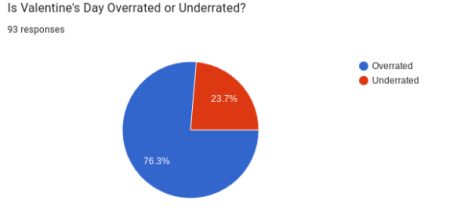To the burning, stop the warming
February 12, 2020
It is blatantly obvious that in the last decade, there has been a bountiful amount of talk about climate change, as there should be, but being informed is not the same as taking action.
So far in 2020, the warming temperatures on the planet are making its mark with more than 17 million acres of forest and shrubs burning across Australia’s six states — an area larger than the countries of Belgium and Denmark combined.
When the bushfires started back in late July 2019, there wasn’t an immediate cause for concern because a fire season is bound to occur annually during the Australian summer with hot, dry weather making it easy for blazes to start and spread, according to a Jan. 13 article written for CNN by Jessie Yeung, “Australia’s deadly wildfires are showing no signs of stopping. Here’s what you need to know.”
However, when the fires’ magnitude only increased by November, the issue began to be voiced worldwide. In December, the country’s Bureau of Meteorology stated on their website, that a heatwave broke the record for highest national average temperature with areas sweltering well above 115 degrees fahrenheit. “Australia has warmed overall by slightly more than 1 degree Celsius since 1910, with most of the heating occurring since 1950,” the bureau also said in early Jan.
These rising temperatures and drier climate caused by global warming are all the main factors in these bushfires. If the temperatures keep rising at the rate they are, and they will with the neglect humans have on this issue, it seems a foreseeable future that drastic conditions like these will only get more frequent and more extreme.
Why are the wildfires so important if they’re happening half-way across the world? Australia is one out of 17 countries to be considered megadiverse, according to Australia’s Department of the Environment and Energy. Species among species of animals have been pushed to the brink of extinction because of the non-stop burning.
The diversity on this planet, our planet, is what makes earth so beautiful and livable. It may be understated at times, but this planet’s ecosystem is fragile, and because of all the disasters rampaging through the forests, oceans, and the Arctic, it is becoming more fragile by the day. In a world where biodiversity is in a steep decline, losing an estimated billion animals to these fires is not a bed to be slept in by any person who enjoys breathing on this earth.
Animal’s fur charred from the smoky fires, kangaroos with their paws just bones– if this isn’t a cry for help, I don’t know what is? What is disturbing is the lack of concern that seems to be shown toward life in Australia.
In April of 2019, the Notre Dame cathedral had a structural fire, causing some of the world’s richest organizations and people to donate to the cause. More than $1 billion was made for the historic building. Of course, the fire was devastating. Jeff Bezzos, the richest man on earth, with a net worth of $160 billion, donated $690,000 to the wildfires. That is a mere .00059 percent of his net worth. If that is the best we can do, then so be it.
However, at least Bezzos drew attention to the fires, along with other A-lister celebrities. It would be nice to see a man so immersed in the business world to give more to those who suffer, but at least he is giving, and who are we to reprimand him.
The Australian bushfires have taken the lives of more than 24 humans and more than one billion animals. Houses lost, destruction too much to ever rebuild and landscapes too charred to ever be replenished are the outcomes. Just because we live half a world away from Australia, does not give any excuses to not see what is going on. Consumers live in a world full of social media and technology. Social media that gives us a lens to see how others are living and technology to forewarn us of the toll this Earth will take if something is not done. These fires, with no end in sight, are not only a result of the neglect on this planet, but just the start of disaster the planet will face if we keep our eyes pointed down and our backs turned.
According to the US EPA Air Pollutant Emissions Trends Data, wildfires contribute to approximately 15 percent of total US particle emissions each year, which is more than emissions from power plants and transportation combined. These particles, about the size of a grain of sand, end up floating around the air, and our lungs inhale them. The Australian bushfires may not affect humans halfway across the world immediately, but down the line, our health and our future will be affected. Let’s not let these natural happenings determine our future, our children’s future, or our Earth’s future. Listen to the news. Stay informed. Stop using these plastic, chemically produced products. Since the majority of us are not multi-millionares, and do not have the resources or training required to help the continent that is 9,818 miles away from Chicago, the most important task is just to stay informed and make minor changes on our day-to-day lives.
